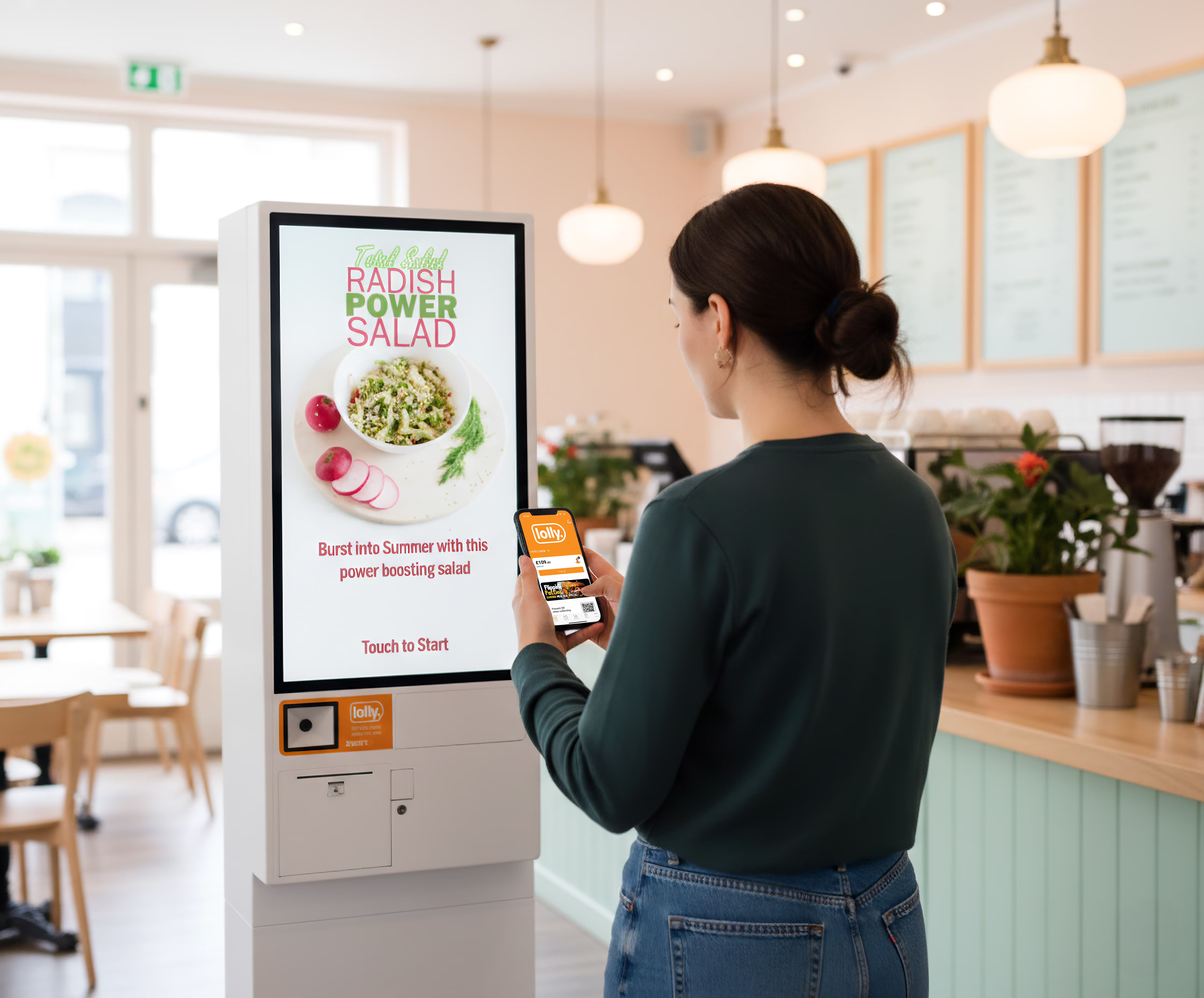Book a Demo
Please fill in the form, and we'll get back to you promptly with the information you need.
Technology in catering
.webp)
Technology In Catering
Peter Moore, CEO of Its Lolly discusses data protection and forecasting technology in hospitality
Using Technology to forecast and service
According to research from WRAP it is estimated that the cost of food waste in the UK hospitality and food service sector will exceed a whopping £3 billion in 2108, with 45% of this food being wasted during food preparation. Old technology presents many challenges in being able to accurately forecast food quantities, manage food wastage and bust queues to encourage footfall and increased business. Working with new technology provides functionality such as cloud hosting, guaranteed uptime, support, real-time information, sales reporting, P&L, stock & wastage and allergen printouts pretty much as standard.
Drill down and the striking difference is that accurate information removes the stress between the client and on-site management which in turn translates into fewer illnesses, better relations and a willingness to work together for longer; making business even more profitable than just managing the bottom line.
Queue busting cashless
Cashless systems are becoming increasingly prevalent in today's busy catering environments. Customers want to make their purchases quickly and with ease. Equally, it has become vital for catering managers to run their establishment as efficiently as possible - from ensuring the best levels of service to guaranteeing stock availability, whilst continually watching the bottom line.
The fact that FMs prefer not to have money on the premises (for obvious security reasons), means there is a need to go 'cashless'. The introduction of contactless has certainly helped with speeding up thetransaction time and removing the pressure on staff, which ultimately drives improved profitability. However, a recent mandate from VISA, Mastercard and American Express means that all contactless transactions will have to be individually authorised, and this is likely to have a detrimental effect through slowingdown the transaction times for contactless. It will be interesting to see the impact this will have.
Pre-payment and collect
We are now seeing the next level of innovation which is all aboutpre-payment and collect. StarBucks was one of the first to introduce this. And because these types of app require registration, they are also helping to drive customer loyalty. However, these services come at a price. When it comes to selecting a digital loyalty and marketing technology platform, then it is important to ensure the selected product is aligned to your customers, and built specifically for the needs of your business. Pre-pay and collect are the future, as well as a requirement of the millennials - ignore them at your peril.
GDPR
General Data Protection (GDPR) is a regulation intended to strengthen and unify data protection for all individuals within the European Union (EU). Itaims primarily to give control back to citizens and residents over theirpersonal data and to simplify the regulatory environment. Organisations of every size are going to be affected by this newlegislation. With fines as high as €20,000,000 or up to four percent of the annual worldwide turnover of the preceding financial year, whichever is greater - the time has come to take control.
Its Lolly recently undertook a survey with the Institute of Hospitality, focusing on aspects of GDPR. The findings included:
➢ 33% of the hospitality sector is still unaware of the newlegislation.
➢ 73% of those surveyed wouldn't know what to do if customers requested details of the data being held about them.
➢ 50% of respondents said they were not aware of how their methods ofpersonal data processing will be impacted under the new regulations.
➢ 40% are unsure as to whether their operational data is safely backedup.
➢ On a more encouraging note, 57% are confident in the systems theyhave in place.
The following provides an overview of what companies need to do today:
➢ They must review the types of personal data currently held on file (paper, audio or digital formats);
➢ Identify lawful grounds for collecting the data;
➢ Identify how the data can be kept correct and up-to-date;
➢ Identify redundant or erroneous data to cull, and
➢ Make a plan as to how ALL of this data is going to be kept secure.
Legacy technology restrictions
The GDPR requirement of reporting a data security breach within 72 hours means that companies are at greater risk if personal data is held on open, unmonitored and unaudited consumer devices such as personal computers and portable mobile devices. There is a need to be GDPR-ready, and to recognise the issues and restrictions posed by traditional legacy technology. The time has come to evolve.
Getting the technology right within the hospitality environment is vital.
However, there are a lot of unknowns and - as ever - it is all about the timing when it comes to consumer's ability to accepting and adopting new technologies.
Frequently Asked Questions
Related Posts
See all posts
Enhancing Hospitality Services with Self‑Serve, Mobile, and Robot Technologies
Non traditional service methods like kiosks, mobile apps, mobile EPoS, robot waiters and pre-order pods are transforming hospitality. They speed up service, reduce staffing pressure and enhance the guest experience. With real world success stories such as Stanhope Weekender, the article shows how tech can boost efficiency and modernise operations. It also guides venues on choosing the right tech mix based on footfall, staffing and scalability.
Subscribe to our Newsletter.
Subscribe to our newsletter to get a curated summary of our latest insights delivered to your inbox monthly. No sales pitches, no spam — ever.



